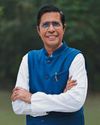
Sovereignty is one of the cornerstones for ensuring the security of the country and ensures that we as a nation can stand up to pressures from other countries. Sovereignty is critical to ensure our economic independence.
So, what is technological sovereignty? Is it the same as Atmanirbharta? To understand the fine difference between the two concepts, one only has to look at the cyber-bombing of the Iranian centrifuges that happened in Natanz in 2021. This was the first time that a cyberattack was used to degrade the nuclear capabilities of a nation.
As is widely known now, the attack was carried out through a malware called Stuxnet. This malware was injected into the nuclear centrifuges through a USB drive, and it used eight backdoors of an operating system provided by a US-based tech company, to infect the programmable logic controller (PLC) that controlled the speed at which the nuclear centrifuges would spin. It made the nuclear centrifuges spin extremely fast and self-destruct.
It is extremely difficult to find one back door to an operating system. Finding eight back doors is nothing short of a miracle. Or as was in this case, it required the wilful cooperation of the American company. The PLCs were from a German company. One had to have cooperation from these companies, in order to be able to infect the PLCs to make them spin faster. The code for Stuxnet itself was purportedly written by an Israeli company. The entire operation was apparently run by the US government.
Arm-twisting Acts
And this explains what technological sovereignty is. The US did not have ownership or atmanirbharta of all the technologies involved in this attack. But had the ability to get access to these technologies and weaponise them for its own benefit. It did not have the need to own all of the technologies.
This story is from the January 2025 edition of Outlook Business.
Start your 7-day Magzter GOLD free trial to access thousands of curated premium stories, and 9,000+ magazines and newspapers.
Already a subscriber ? Sign In
This story is from the January 2025 edition of Outlook Business.
Start your 7-day Magzter GOLD free trial to access thousands of curated premium stories, and 9,000+ magazines and newspapers.
Already a subscriber? Sign In

From Chandni Chowk to Global Recognition
For Manish Aggarwal, director at Bikano, Bikanervala Foods, the family business was not just a responsibility but a passion he took to the global stage

Spotting AI Scams
Al has become an integral part of our lives, from customer service no insurance claims. But it is also becoming a tool for fraudsters who use it to scam individuals and corporations

Let a Hundred Flowers Bloom
On the banks of the Ganges in industrial Kanpur, a start-up has blossomed that turns waste flowers into incense

BATTERY LOW
India produces enough green energy to power many of its largest cities yet lacks the storage to use it efficiently. A nation blazing forward must leap ahead in battery technology to stay on course

We Have Everything Going for Rajasthan
Rajyavardhan Singh Rathore, Rajasthan’s industry and commerce minister, tells Pushpita Dey why the state is suited to become a hub for investments.

Dairy and Other Dilemmas
India’s refusal to open its dairy market has complicated trade negotiations for years. As global partners demand concessions, is the cost of protectionism outweighing benefits?

Riding in a Maze
As gig workers ride into an uncertain future with little more than a smartphone and a bike, the government is struggling to arrange a socialsafety net. But millions without social security is recipe for disaster

BIRLA'S BIGGEST BATTLE
As Kumar Mangalam Birla completes 30 years at the helm of the Aditya Birla Group, he has a battle to defend his businesses and conquer new ones

THE INNOVATION LEAP
India dreams of becoming a product nation. But unless the corporate sector significantly increases spending on R&D, the country will continue to lag behind global peers

EDUCATION BUDGET MUST DOUBLE EVERY 3 YEARS
Veezhinathan Kamakoti, a renowned academic and director of Indian Institute of Technology Madras, tells Deepsekhar Choudhury on what technology sovereignty means for India and how it can propel the country towards its vision of becoming a developed nation by 2047.